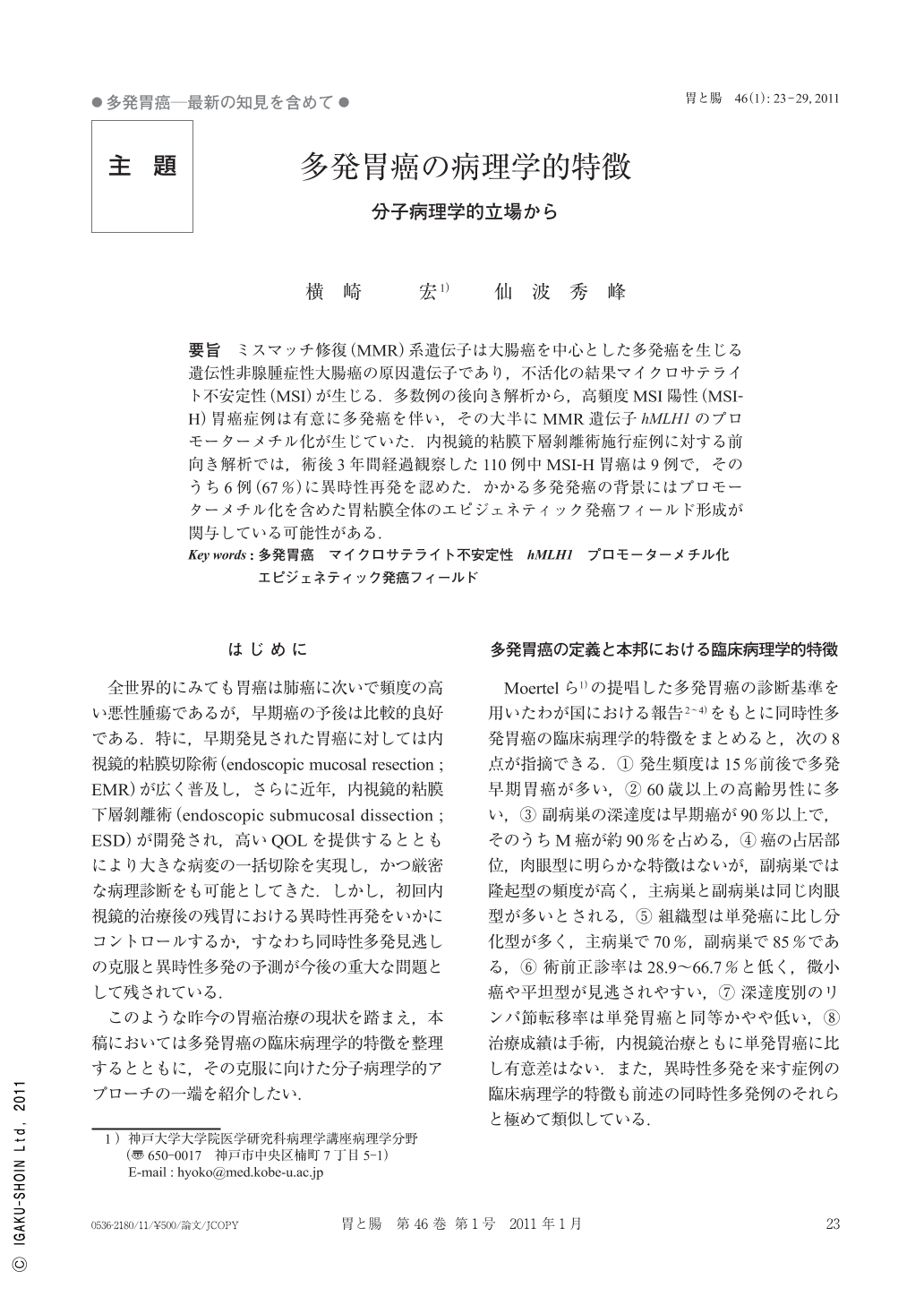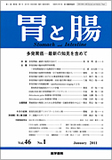Japanese
English
- 有料閲覧
- Abstract 文献概要
- 1ページ目 Look Inside
- 参考文献 Reference
要旨 ミスマッチ修復(MMR)系遺伝子は大腸癌を中心とした多発癌を生じる遺伝性非腺腫症性大腸癌の原因遺伝子であり,不活化の結果マイクロサテライト不安定性(MSI)が生じる.多数例の後向き解析から,高頻度MSI陽性(MSI-H)胃癌症例は有意に多発癌を伴い,その大半にMMR遺伝子hMLH1のプロモーターメチル化が生じていた.内視鏡的粘膜下層剝離術施行症例に対する前向き解析では,術後3年間経過観察した110例中MSI-H胃癌は9例で,そのうち6例(67%)に異時性再発を認めた.かかる多発発癌の背景にはプロモーターメチル化を含めた胃粘膜全体のエピジェネティック発癌フィールド形成が関与している可能性がある.
Inactivation of MMR(mismatch repair)system gene(s), responsible for hereditary non-polyposis colorectal cancer syndrome that develop multiple cancers in the colorectal as well as other organs, results in MSI(microsatellite instability). Reterospective study with thousands of gastric cancers revealed that those with MSI-H(high frequency of MSI)were significantly associated with multiple cancers mainly in the stomach. Methylation of the hMLH1, one of the components of MMR, was detected in most MSI-H tumors. Prospective study with patients who received endoscopic submucosal dissection for gastric cancer showed that 67% of the patients with MSI-H tumors developed metachronous cancer(s). Generation of an epigenetic carcinogenic field including promoter methylation within the whole stomach mucosa may account for the development of multiple cancers.

Copyright © 2011, Igaku-Shoin Ltd. All rights reserved.


